#traffic
Texas Resident Calls for Investigation Over Bogus Red Light Camera Tickets
Port Lavaca, Texas is refusing to release documents that might reveal whether additional motorists have received automated tickets for running a green light. Yesterday, Byron Schirmbeck, director of saferbaytown.com, filed a formal complaint with Calhoun County District Attorney Dan Heard over the city’s refusal to comply with the terms of the state open records statute that generally requires the disclosure of public documents within ten days.
Colorado: Another City Looks to Dump Red Light Cameras
Add Colorado Springs, Colorado to the growing list of cities having second thoughts about the use of red light cameras. On Tuesday, interim Police Chief Pete Carey discussed his intention to drop the year-old program as the contract with vendor American Traffic Solutions (ATS) expires at the end of the year. The mayor, who asked the previous chief to step down, is behind the move.
“The photo red-light enforcement program did not meet our expectations,” Mayor Steve Bach said in a statement. “It is as simple as that. If a safety program can’t be shown to improve safety, it ought to be stopped.”
Georgia HOT Lanes Create Congestion, Disappointment
Georgia’s introduction of high occupancy toll (HOT) lanes on Interstate 85 at the beginning of the month has already turned into a public relations disaster. During rush hour, motorists found themselves stranded in the general purpose lanes as the adjacent HOT lane — constructed and maintained with their tax dollars — were essentially unused. Drivers balked at paying the stiff $5.40 entrance tax for permission to enter, leaving the existing lane space to go to waste. Governor Nathan Deal (R) intervened swiftly on October 6 to order the State Road and Tollway Authority (SRTA) to lower the cost of using the toll lane.
Nebraska Supreme Court: No DUI in a Private Driveway
Jeffrey McCave was sentenced in a county court to thirty days in jail, two years of probation and a $1000 fine for listening to music in an undriven car parked on his father’s driveway while drunk. The Nebraska Supreme Court on Friday used the case to clarify that the charge of driving under the influence of alcohol (DUI) does not apply in a personal driveway.
Fuel Economy: It's Your Problem Too
A University of Michigan study [ PDF] shows that, in the 85 years between 1923 and 2008, average on-road fuel economy in the US has improved a mere 3.5 MPG. In fact, the study shows that driving a car is even more energy-intensive (per occupant-mile) than flying on an airplane (3,501 BTU per mile versus 2,931 BTU per mile). Some will blame weak government regulations for this unimpressive result, but the study found that the convenient government scapegoat is not completely to blame.
This report presents information about the effects of decisions that a driver can make to influence on-road fuel economy of light-duty vehicles. These include strategic decisions (vehicle selection and maintenance), tactical decisions (route selection and vehicle load), and operational decisions (driver behavior).
The results indicate that vehicle selection has by far the most dominant effect: The best vehicle currently available for sale in the U.S. is nine times more fuel efficient than the worst vehicle. Nevertheless, the remaining factors that a driver has control over can contribute, in total, to about a 45% reduction in the on-road fuel economy per driver—a magnitude well worth emphasizing. Furthermore, increased efforts should also be directed at increasing vehicle occupancy, which has dropped by 30% from 1960. That drop, by itself, increased the energy intensity of driving per occupant by about 30%
South Carolina: Lower Court Rules Driving 55 Suspicious
Spartanburg County Circuit Court Judge Roger L. Couch ruled that driving just 5 MPH under the speed limit, not in the fast lane, is suspicious enough to justify a traffic stop. South Carolina’s second highest court on October 5 examined the case, but sidestepped the speed issue to decide whether a man could be convicted of marijuana possession simply because he was in a car that contained the drug.
The three-judge appellate panel reviewed the September 16, 2008 incident that when Nicholas Carl Davy was driving in the middle lane of traffic on Interstate
85 through Spartanburg County. Andre Jackson was a passenger taking a ride to Greenville. He went to school with and was a friend of Davy’s 22-year-old son.
Washington: Judge Throws Out Voter Petition on Red Light Cameras
A King County, Washington court is unwilling to allow the public to have any input into the question of whether red light cameras and speed cameras should be used in Redmond. In a ruling yesterday, Judge Laura Inveen quashed the 6050 signatures that had been filed by city residents who wanted the issue to be presented to voters — even if only as a non-binding advisory question. Photo enforcement opponents meanwhile have been mounting their own counter-offensive, hoping the state supreme court will resolve the contradictory legal rulings in the lower courts.
US DOT Backs Off Public Funding for Toll Road Privatization
A plan to spend $1.5 million in federal gas tax funding to help a private company purchase the Ohio Turnpike was torpedoed by a group of Democratic members of Congress from the Buckeye State. US Department of Transportation officials held a conference call Friday to let US Representatives Marcia Fudge, Marcy Kaptur, Dennis Kucinich, Tim Ryan Betty Sutton, and Senator Sherrod Brown know that the project had been shelved.
California Governor Sides With Red Light Camera Companies
California Governor Jerry Brown (D) sided on Friday with red light camera companies and the remaining municipalities that use automated ticketing machines. He vetoed a measure that would have placed the mildest of restrictions on photo ticketing.
“I am returning Senate Bill 29 without my signature,” Brown wrote in his veto message. “This bill standardizes rules for local governments to follow when installing and maintaining red light cameras. This is something that can and should be overseen by local elected officials.”
Costa Rica Unveils Most Burdensome Speed Camera Program Yet
Since September 8, motorists in Costa Rica have been racking up speed camera fines worth 308,295 colones (US $600) each. Sixteen speed cameras have been flashing around the city of San Jose at a rate of a thousand per day as part of the brand new program. Those fines — among the world’s highest — are not being mailed to vehicle owners, as is the case elsewhere. Instead, motorists are expected to check their plate number on a regular basis to see if they need to pay up.
On September 26, the first set of license plates was published in the form of a 120-page list in La Gaceta, the government’s official journal. The alleged violations are sorted by day, so all of the country’s vehicle owners must scan each day of the week looking for their vehicle. Those among the 15,429 plates that have been listed so far have until October 17 to come up with the $600 in cash.
State Governors Honor Red Light Camera Company Front Group
State highway officials are using their public offices to lend credibility to a public relations front group created by a foreign red light camera company. On September 27, the Governors Highway Safety Association (GHSA) held its annual meeting in Cincinnati, Ohio where it celebrated the “special achievement” of the Traffic Safety Coalition. This group, which is run by a public relations firm retained by the Australian photo enforcement firm Redflex Traffic Systems, accepted the Peter K. O’Rourke Special Achievement Award.
GHSA is a non-profit organization that “receives a substantial part of its support from a governmental unit or from the general public,” according to its tax returns. Its primary members are state transportation officials who use GHSA to lobby on behalf of programs that increase the issuance of traffic tickets.
Albuquerque, New Mexico Voters Reject Red Light Cameras
Voters in Albuquerque, New Mexico turned out in large numbers Tuesday to vote down the use of automated ticketing machines. Nearly 40,000 ballots were cast on an advisory question that City Councilor Dan Lewis placed before voters.
“Shall the Albuquerque City Council continue authorizing the ‘safe traffic operations program,’ commonly called the ‘red light camera program’?” the ballot asked.
With 94 percent of precincts reporting, 53 percent said “no” to the cameras. Unlike past referendum efforts, the city council created the ballot measure rather than citizen activists. As a result, there was no organized campaign urging people to vote down photo enforcement. On the other hand, Redflex Traffic Systems, the Australian company that runs the camera program in Albuquerque, put on an all-out effort to advertise in support of photo ticketing.
California: Appeals Court Approves Cell Phone Search During Traffic Stop
The California Court of Appeal on September 26 approved a police officer’s rifling through the cell phone belonging to someone who had just been pulled over for a traffic violation.
Reid Nottoli was pulled over on December 6, 2009 just before 2am as he was taking a female friend home. Santa Cruz County Deputy Sheriff Steven Ryan said Nottoli’s silver Acura TL had been speeding on Highway 1. After speaking with Nottoli on the side of the road, Ryan suspected the 25-year-old was under the influence of a stimulant drug. His license was also expired, so Ryan said he would impound the vehicle. Nottoli asked if his car could stay parked on the side of the road, which was not heavily traveled and out of the way. Ryan refused so that he could conduct an “inventory” search prior to the towing.
Texas City Works With Traffic Camera Company to Nullify Anti-Camera Vote
A red light camera company and officials in the city of Baytown, Texas are conspiring to nullify the results of an election. In November, 58 percent of voters approved a ballot measure prohibiting the use of red light cameras unless a police officer is present to witness any alleged offense. American Traffic Solutions (ATS) filed suit in February to overturn the result of this vote, and city officials on September 22 asked Harris County Judge Michael D. Miller to sign off on a settlement of this suit that was prepared by ATS.
"In Many Ways, the Marriage Between the Indian Middle Class and the Automobile Culture Has Been Disastrous."
The NYT’s opinion page has a provocative piece by Siddhartha Deb today. It explores the role that automobiles play in the class dynamics of a modernizing India. Deb writes
Until the mid-1990s, cars had been mainly available in two models in India: the unglamorous, onion-shaped, sturdy Ambassador and the more aerodynamic Maruti 800. Both were produced by state-run companies (though the latter had a partnership with the Japanese company Suzuki). But when India began to open its markets, a wide range of cars became available, just as rising middle-class incomes and cheap consumer credit made buying such cars feasible.
In many ways, the marriage between the Indian middle class and the automobile culture has been disastrous. Roads remain awful, drivers continue to be erratic, and traffic in cities like Delhi and Bangalore is worse than ever. And yet the car has become deeply enmeshed with upward mobility, while also complicating that mobility. In the India of the Ambassador and the Maruti, the distinction was largely between those who owned cars and those who did not. In the India of Ford, Fiat, Hyundai and Mahindra — where there is even a very cheap indigenous model called the Tata Nano — distinctions are parsed in terms of the model one owns.
Drom the Bollywood producer’s suit-matched Bentley Continental to a struggling middle class couple’s divorce over the wife’s aspirations to a red Mitsubishi Pajero, Deb documents the cars, and other forms of transportation, which help define the emerging class order in India. It’s a brief but intriguing glimpse into the social impact of cars in a rapidly-growing economy, and it illustrates how cars both affect and reflect the fabric of social order. Give the whole thing a read if you’ve got a spare minute.



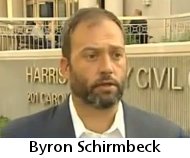
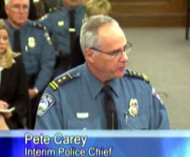
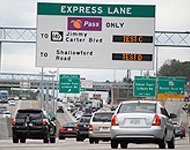

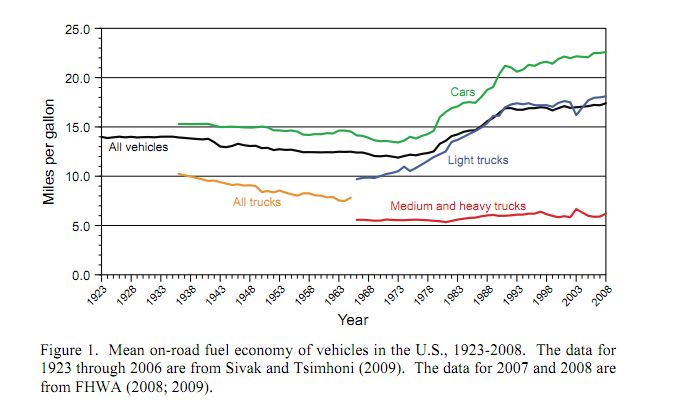






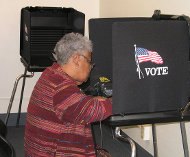














Recent Comments